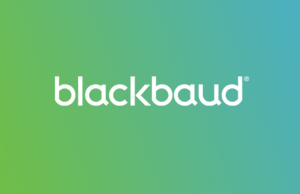In what might be a sign that the U.S. Department of Justice (DoJ) review of the acquisition of rival software maker Convio is coming to a conclusion, Blackbaud today re-filed its Premerger Notification and Report Form.
The Charleston, S.C.-based software company essentially will know by April 30 or sooner whether it can move forward with the closing process and complete the $275-million acquisition of Convio once the waiting period expires in two weeks. It’s possible that the firm could be granted early termination or the DoJ could request more information that would extend the two-week waiting period.
Blackbaud chose to file today “because we thought the timing was right,” said spokeswoman Melanie Mathos, adding that the company has been working throughout this process on a daily basis with DoJ. “Essentially we have two weeks to have them come back to us. It’s a necessary step in closing the deal,” she said, though there are “no guarantees.”
It’s a mandatory review period, and the DOJ has the option of approving the deal or embarking on a second review. “This whole time we’ve been trying to avoid a full review, working on an informal basis with DoJ, without an artificial timeline,” Mathos said. “We’ll know in two weeks essentially.”
The premerger filing is mandatory under the Hart-Scott-Rodino Antitrust Improvements Act of 1976 but Blackbaud withdrew its initial filing in February – with plans to re-file – to allow for more time to work with DoJ. During the waiting period Blackbaud said it continues to cooperate with the DoJ and answer any questions raised by DoJ staff. The HSR form includes information about each company’s business and provides the Federal Trade Commission (FTC) and DoJ with information about larger mergers and acquisitions before they occur.
While the tender offer can be extended in increments of 10 business days, the HSR form is just two weeks and the company would have to pull it and re-file – which can be costly – if the acquisition is not completed. “It’s not something you want to repeatedly do unless you think you’re getting close,” Mathos said.
Jay Nixon, a partner with Nashville, Tenn.-based Waller Lansden who practices in areas of mergers and acquisitions and venture capital financing, said it would appear that the DoJ process is winding down. “Anything can happen but I take it that since they (Blackbaud) filed, it’s a sign that they think they’ve gotten DoJ comfortable with whatever issues there were,” he said.
If the DoJ had made a more formal second request, that takes a long time and is much harder to respond to, said Nixon. “I’d take this as a sign that they talked through informally and provided information to the DoJ,” he said.
The acquisition is structured such that it has to be completed by the fall. When the deal was announced in mid-January, the two publicly traded firms had planned to have the deal closed by the end of March. Blackbaud extended the expiration of its cash tender offer for a fourth time on April 4, to April 18.
More than three-quarters of the nearly 19 million outstanding shares of Austin, Texas-based Convio had been tendered as of April 3 at $16 a share. Convio’s board of directors held about a third of all shares going into the merger, which was approved by both company’s boards.











